DEADLINES & IMPORTANT DAYS
SAVE THE DATE:
RAFA 2019 will be organised on 5-8 November 2019, in Prague, Czech Republic (www.rafa2019.eu).

Dr. Elke Anklam
(European Commission, DG Joint Research Centre Director, Institute for Reference Materials and Measurements, Geel, Belgium)
Elke Anklam is a chemist by education with specialisation in food, organic and radiation chemistry. After having obtained her PhD from the University Hamburg, Germany, she worked in various European Research Institutions and was teaching as Professor in the Applied University of Fulda, Germany. Since 1991 she has been working in the European Commission's Joint Research Centre (JRC-EC). From 2006-2012 she was Director of the Institute for Health and Consumer Protection (JRC-IHCP) in Ispra, Italy and since January 2013 she is Director of the Institute for Reference Materials and Measurements (JRC-IRMM) in Geel, Belgium.

Mr. Paul Brereton
(Fera Science Ltd., York, United Kingdom)
Paul Brereton is Head of Agri-food Research at the Fera based in York, UK. A scientist working at science-policy interface, he has over 30 years experience of applied research in the area of food safety and quality. As well as leading numerous national activities, Paul has co-ordinated two of the world’s largest research projects in the area of food authenticity and traceability: the €20M TRACE project (Tracing the origin of food) and currently FOODINTEGRITY a €12M EU sponsored research project that aims to address, at a European level, many of the gaps identified during the recent horsemeat incident. He has published over 70 peer reviewed papers and recently edited the book “New analytical approaches for verifying the origin of food” (Woodhead/Elsevier). He and has close links with the food industry, UK Public sector, academia and the European Commission.
Prof. Christopher Elliott
(Institute for Global Food Security, Queen's University Belfast, Belfast, UK)
Chris is currently Professor of Food Safety and Director of the Institute for Global Food Security at Queen’s University Belfast. He has published around 300 peer review articles, many of them relating to the detection and control of agriculture, food and environmental related contaminants. His main research interests are in the development of innovative techniques to provide early warning of toxin threats across the agri- food chains. Protecting the integrity of the food supply chain from fraud is also a key research topic and Chris led the independent review of Britain’s food system following the 2013 horsemeat scandal. Over the years Chris has developed a high level network of collaborators across Europe, the United States and Asia. He co-ordinates and participates in multiple European framework research projects. He is a founding member of the International School for Advanced Residue Analysis in Food based in France. He is also a visiting Professor at the China Agriculture University in Beijing, a recipient of a Winston Churchill Fellowship and is an elected Fellow of the Royal Society of Chemistry, Royal Society of Biology and the Institute of Food Science and Technology.

Dr. Carsten Fauhl-Hassek
(Federal Institute for Risk Assessment, Berlin, Germany)
Dr Carsten Fauhl-Hassek is a food chemist and works at the department for Safety in the Food Chain based within the Federal Institute for Risk Assessment (BfR) in Germany. He is head of the unit Product Identify, Supply Chains and Traceability and has special expertise in wine analysis and appreciation, authentication of food and feed, NMR and stable isotope analysis.

Robert van Gorcom
(Vice-chair of the board of EFSA & director of RIKILT Wageningen University & Research, Wageningen, The Netherlands)
Robert van Gorcom graduated in Molecular Sciences at Wageningen University (1981) and did his PhD in Molecular Genetics at the University of Amsterdam (1997) on the analysis of gene expression in filamentous fungi. He worked for 20 years at the Dutch Organization of Applied Scientific Research TNO as project leader and department manager on microbial and plant biotechnology. In 2000 he became managing director of the glasshouse horticulture research stations of Wageningen UR and in 2002 he joint Wageningen UR’s food safety research institute RIKILT as BU manager. He was appointed as general director of RIKILT on 1-1-2010. In July 2014 he also became a member (and in 2016 vice chair) of the Management Board of EFSA (the European Food Safety Authority) where he also is a member of the Audit committee.

Prof. Jana Hajslova
(University of Chemistry and Technology, Prague, Czech Republic)
Prof Jana Hajslova is the head of the Department of Food Analysis and Nutrition, University of CHemistry and Technology, Prague (UCT Prague) and chairs Accredited (ISO17025) Laboratory "Food Quality and Safety". She is a widely recognized expert in the field of food / environmental chemistry and analysis; she has published more than 250 original papers on development of advanced analytical strategies of contaminants, residues, natural toxins and other biologically active compounds, authentication and metabolomics. Her research team has participated in many international and national projects at both research and management levels, including the EC 5 - 7th Framework Programme, HORIZON 2020, several COSTs and EEA and Norwegian grants. Prof Hajslova together with her PhD students has been involved in various bilateral international research activities; under her supervision, close collaboration with many world-renowned institutions, such as WHO, FAO, USDA and the European Commission’s Joint Research Centre has been established. Currently she is the Czech Republic delegate in HORIZON 2020 SOCIETAL CHALLENGE 2: "Food Security, Sustainable Agriculture and Forestry, Marine and maritime and inland water research and the Bioeconomy" committee. As the chairwomen, she had a key input in establishing a series of very reputable international symposia "Recent Advances in Food Analysis" series in 2003-2015.

Prof. Dr. Ron M.A. Heeren
(University of Maastricht & Maastricht MultiModal Molecular Imaging institute, Maastricht, The Netherlands)
Prof. Dr. Ron M.A. Heeren obtained a PhD degree in technical physics in 1992 at the University of Amsterdam on plasma-surface interactions. He was the research group leader at FOM-AMOLF for macromolecular ion physics and biomolecular imaging mass spectrometry. In 2001 he was appointed professor at the chemistry faculty of Utrecht University lecturing on the physical aspects of biomolecular mass spectrometry. In the period 1995-2016 he has been developing new approaches towards high spatial resolution and high throughput molecular imaging mass spectrometry using Secondary Ion Mass Spectrometry and Matrix Assisted Laser Desorption and Ionization. He was the research director for emerging technologies within the Netherlands Proteomics Centre from 2008-2013. In 2012 he co-founded Omics2Image B.V., a company focused on bringing innovative ion detector technology to the analytical market. In 2014 he was appointed as distinguished professor and Limburg Chair at the University of Maastricht where he now is the co-director jointly with Prof. Peter Peters of M4I, the Maastricht MultiModal Molecular Imaging institute and heads the division of imaging MS. He is the elected treasurer and executive board member of the international mass spectrometry foundation and serves on various editorial and advisory boards of peer-reviewed journals. He is and has been active in many professional societies to advance mass spectrometric research, education and professionalization. His publication record encompasses an excess of 200 peer-reviewed publications and his H-index is 38.
His academic research interests are the fundamental studies of the energetics of macromolecular systems, conformational studies of non-covalently bound protein complexes, translational imaging research, high-throughput bioinformatics and the development and validation of new mass spectrometry based imaging techniques for life sciences and clinical research.

Dr. Hans-Gerd Janssen
(Unilever Research and Development, Vlaardingen, Netherlands)
Prof. Hans-Gerd Janssen studied chemical Engineering at the Eindhoven University of Technology, where he obtained his MSc Diploma (fast GC, 1987, cum laude) and PhD. Degree (Supercritical-Fluid Chromatography, 1991). He joined the Eindhoven University as an assistant/associate professor in 1991. Prof. Janssen joined Unilever in 1999 to become group-leader chromatography and mass spectrometry. He has been, or is, active as a board member in several national committees including the Section for Analytical Chemistry of the Royal Dutch Chemical Society (KNCV) and the working group Separation methods of the KNCV. He also is active in several international scientific and organising committees for symposia and meetings and he is a member of the editorial board of several journals including the Journal of Chromatography. In 2004 Hans-Gerd was appointed part-time professor Analytical Separations at the University of Amsterdam. His research focuses on the development of new chromatographic and chemometrics methods for the analysis of complex food and biomedical samples. He has more than 180 publications in the area of chromatography, mass spectrometry, metabonomics and food analysis.

Prof. Henryk Jeleń
(Poznan University of Life Sciences, Poznan, Poland)
Henryk Jeleń is a full professor at the Faculty of Food Science and Nutrition, Poznań University of Life Sciences since 2007. He received his PhD (1996) and habilitation (2002) in food science, specializing in food chemistry. His scientific interests are related mainly to flavor chemistry – especially analysis of food odorants using hyphenated techniques (GC-O, GC-MS/MS, GCxGC-MS), profiling volatile compounds for authenticity testing and monitoring changes in food products. He is also interested in sample preparation techniques in flavor/volatile compounds analysis, especially solvent-less approaches. He authored over 120 peer-reviewed scientific publications. He is a corresponding member of Polish Academy of Sciences.

Prof. Roland Kallenborn
(Norwegian University of Life Sciences, Oslo, Norway)
I am educated in biology and chemistry from the University of Kaiserslautern (Germany) and was awarded the doctorate degree (Dr. rer. nat.) from the University of Hamburg (Germany) in 1993 for a comprehensive study on persistent organic pollutant (POP) levels in common eiders (Somateria mollissima (L.)). I am currently employed as professor at the Department of Chemistry, Biotechnology and Food Science, Norwegian University Life Sciences (NMBU/IKBM) in Ås. In addition, I hold an adjunct Professorship at the University Centre in Svalbard (www.unis.no) in Arctic Technology.
My research is combining modern chemical analysis techniques and risk assessments for various types of organic contaminants (legacy and emerging organic xenobiotics) in food and environments. For this research work I am applying modern trace analysis techniques including high performance liquid and gas chromatography coupled to mass spectrometry and other detectors (incl. DAD, FID, TCD, ECD).

Dr Christian Klampfl
(Johannes Kepler University Linz, Linz, Austria)
Christian W. Klampfl obtained his Ph.D. from University of Innsbruck/Austria in 1993. Since 1992 he is holding a position at the institute of Analytical Chemistry of Johannes-Kepler University in Linz first as an assistant-, since 2001 as an associate professor. His main interest is the hyphenation of separation techniques (mainly capillary electrophoresis) with mass spectrometry. Since 2008 he has been the editor of six Special Issues of Electrophoresis and Journal of Chromatography A devoted to this topic. Recently he developed increased interest in ambient ionization mass spectrometry, particularly for DART, DESI and direct ionization techniques such as direct MS from thin-layer chromatography plates. He has published more than 100 research papers and seven book chapters, covering a wide field of analytical chemistry applications - from the analysis of pharmaceuticals and food related materials to environmental and plant related topics and finally the characterization of technical products such as synthetic polymers. Currently Prof. Klampfl is acting as deputy head of the Institute of Analytical Chemistry and as vice-head of the academic senate of Johannes Kepler University Linz.
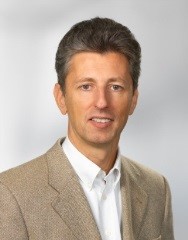
Prof. Rudolf Krska
(University of Natural Resources and Life Sciences, Vienna, IFA-Tulln, Austria)
Rudolf Krska is full professor for (Bio-)Analytics and Organic Trace Analysis at the University of Natural Resources and Life Sciences, Vienna (BOKU). He is head of the Center for Analytical Chemistry at the Department of Agrobiotechnology (IFA-Tulln) at BOKU with some 50 staff. From 2010-2015 Prof. Krska also served as head of the BOKU-department IFA-Tulln with more than 200 staff. Rudolf Krska has established intensive interdisciplinary cooperation with universities and companies and has been coordinator and work package leader of several European Commission funded projects dealing with the determination and reduction of mycotoxins and hidden allergens in food. As member of JECFA (Joint Expert Committee for Food Additives) of the FAO/WHO he has evaluated the impact of trichothecenes on humans. Rudolf Krska was also member of the Working Group Fusarium of the Scientific Panel on Contaminants of the European Food Safety Authority. 2009/2010 he worked for one year as A/Chief of Health Canada´s Food Research Division where he was responsible for the research on chemical contaminants in foods carried out within Health Canada´s National Food Chemical Safety Laboratory Network in Ottawa, Montreal, Toronto, Winnipeg and Vancouver.
Prof. Rudolf Krska has received 10 scientific awards and is (co‑)author of more than 300 SCI publications (h-index: 51; citations in 2016: >1200). In 2015 and 2016, Thomson Reuters (Web of Science) identified Prof. Krska as one of the world’s most influential contemporary researchers due to his ranking among the top 1% most cited authors in the field of agricultural sciences. His current research interests are in the area of plant-fungi metabolomics, IR-spectroscopy and novel mass spectrometric methods for the determination of multiple mycotoxins including their conjugation and transformation products in food, feed and other biological matrices. As of March 2016, Prof. Krska acts as coordinator of the European Commission funded project MyToolBox (Safe Food and Feed through an Integrated ToolBox for Mycotoxin Management) with 23 partners (including 40% industry participation and 3 partners from China) and a funding volume of more than 6 Mio Euro. Since 2017, he is also Green Area Leader at the Austrian Competence Centre for Feed and Food Quality, Safety and Innovation (FFOQSI) with 18 company partners and a project volume of >5 Mio Euro.

Prof. Erich Leitner
(Graz University of Technology, Graz, Austria)
Erich Leitner studied the Technical Chemistry at the Graz University of Technology where he obtained PhD on organic trace analysis and habilitation in "Food Chemistry". He is the head of the research group "Food chemistry and Human Sensory Analysis" at the Institute of Analytical Chemistry and Food Chemistry at the Graz University of Technology.
He has almost thirty years of research experience in the field of gas chromatographic techniques. The main focus is the identification of odour active molecules in food and in food contact material mainly based on gas chromatographic technique. Several one and two dimensional techniques are applied in combination with different sample preparation regimes and detection systems for method optimization.
In addition the research group runs a trained expert panel and a sensory lab with 15 booths for specific tasks related to odour problems. The panel and the specific equipment of the sensory lab fulfil the requirements given by European standards. The sensory panel is required for sensory threshold determination to estimate the odour potential of single odorants.

Prof. Michel Nielen
(RIKILT Wageningen UR, Wageningen, the Netherlands)
Prof Michel Nielen is principal scientist at RIKILT, scientific director of TI-COAST, the Dutch public-private partnership on Analytical Science & Technology, and professor of analytical chemistry at Wageningen University. He obtained his doctorate in analytical chemistry at the Free University of Amsterdam. He is co-founder and co-chairman of the symposium series on Recent Advances in Food Analysis (RAFA). He is (co )author of more than 170 peer-reviewed publications and book chapters.
Petter Olsen
(Nofima, Tromsoe, Norway)
Petter Olsen received M.Sc. in software engineering, applied mathematics and operational research from University of Strathclyde, Glasgow, 1986. He has worked at Nofima since 1993, now senior scientist at Department for industrial economics and strategic management. Works with applications of ICT in the food industry, especially related to information logistics, traceability, production management, simulation, sustainability and decision support systems. Serves as an adviser to FAO, to the EU, to several EU-funded projects, to the Nordic Council of Ministers and to the Nordic Industrial Fund on these subjects. Co-ordinator of the EU 5FP TraceFish project, the EU 7FP WhiteFish project, and several Nordic and national projects. WP leader in numerous other national and international projects including EU 6FP Seafood Plus, EU 6FP TRACE, EU 7FP EcoFishMan, EU 7FP FoodIntegrity and H2020 PrimeFish. Author or co-author of 3 European standards (CWAs), 2 ISO standards (ISO 12875 and 12877) and more than 15 peer-refereed scientific publications.
Prof. Michael Rychlik
(Technische Universität München, München, Germany)
Prof. Michael Rychlik is the Head of the Chair of Analytical Food Chemistry at the Technische Universität München, Germany (TUM). He graduated in food chemistry at the University of Kaiserslautern in 1988. His PhD studies on the flavor of bread were completed in 1996 and he was appointed full professor at the TUM in 2010. His group has been working for 15 years in the field of developing analytical methods for bioactive food components, in particular for vitamins, mycotoxins, odorants and lipids. For these compounds, he developed stable isotope dilution assays (SIDAs) that reveal superior accuracy. Moreover, his research is focused on the application of these methods to recent areas in food chemistry, technology, toxicology and nutrition.
Dr. Michele Suman
Barilla Food Research Labs, Parma, Italy
Michele Suman obtained his Analytical Chemistry Degree, Summa Cum Laude, at University of Ferrara in 1997. He won the National Prize for Young Researchers promoted by the Italian Chemistry Federation (Federchimica) in 1998.
Then he took a master's degree in 1998 (Master in Science, Technology and Management from University of Ferrara, working at the same time at the "Natta Research Center" of Shell-Montell Polyolefins) and a doctorate in 2005 (PhD in Science and Technology of Innovative Materials from University of Parma), landing the role of Food Chemistry & Safety Research Manager in Barilla Spa company in 2003. Here he has been working in an international contest with public and private research centers\organizations on research projects within the field of food chemistry, food safety-quality-authenticity, food contact materials, sensing and mass spectrometry applications for food products.
He is member of working groups in European Committee for Standardization (CEN) and Vice-Chair of the ILSI Process Related Compounds & Natural Toxins Task Force; Leader in the Food Safety Section of Italian National Cluster Agrifood, member of the Board of Mass Spectrometry Division – Italian Chemistry Society; editorial boards of important peer-reviewed journals (World Mycotoxin Journal, Food Additives and Contaminants,…).
He has been involved in various National/European Funded Projects and presently he is WP Leader in the EU-FP7 FoodIntegrity Project and in the EU-H2020 MyToolBox projects.
He has developed experience in academic teaching activities, masters\PhD projects supervision, coordination/chairmanship of international conferences (Recent Advances in Food Analysis, World Mycotoxins Forum, FoodIntegrity, MS Food Day, Rapid Methods Europe,…).
His scientific production is documented by five book chapters, 104 contributions at national and international conferences and 66 papers in international ISI journals.
Dr. Frans Verstraete
(European Commission, Directorate General for Health and Consumers, Brussels, Belgium)
Frans Verstraete graduated in 1985 as agricultural engineer at the University of Ghent (Belgium). After his studies he held positions at the University of Ghent and thereafter at the Belgian Ministry of Agriculture and he was for a period technical adviser of the Belgian Minister of Agriculture. He is working for the European Commission since 1997. In the European Commission he has had various functions but since 2000 he is working at the Directorate General Health and Consumers in the Chemicals, contaminants and pesticides unit. He is responsible for the elaboration, development and management of the EU-legislation concerning certain contaminants in feed and food.

Prof. Yongning Wu
(China National Center for Food Safety Risk Assessment, Beijing, China)
Dr. Wu is Chief Scientist of China National Center of Food Safety Risk Assessment (CFSA), director of MOH Key Laboratory on Food Safety Risk Assessment, director of WHO Collaboration Centre for Food Contamination Monitoring (China). He obtained his Bachelor degree in public health from Nanjing Medical College in 1983, and received his Master’s and Doctor degree in Nutrition and Food Hygiene from Chinese Academy of Preventive Medicine in 1986 and 1997, respectively. He is UICC follow worked in International Agency for Research on Cancer (Lyon) from 1991 to 1992, the Royal Society KC Wong fellow in the MRC Toxicology Unit (Leicester University). Dr Wu serves as a key members in several national and international food safety committees. He is on the roster list for FAO/WHO Joint Expert Committee on Food Additive (JECFA), e.g,. Expert Panel for Chemical Exposure in Food, as well as Expert Panel for Food Additives, Contaminants and Toxins Analysis, Monitoring and Control. He is a member of the USP Food Ingredients Expert Committee and its Intentional Adulteration Expert Panel as well as Joint Referance Material Standard Committee. He is chairperson of Subcommittee on Food Contaminants of the National Food Safety Standard Reviewing and Approving Committee in China, and the Review Expert Panel on Negative List for Non-edible Food Ingredients as Intentional Adulteration. He has edited 5 books and published 200 papers.
Copyright © RAFA 2017 - All Rights Reserved - RAFA 2017 Terms and Conditions